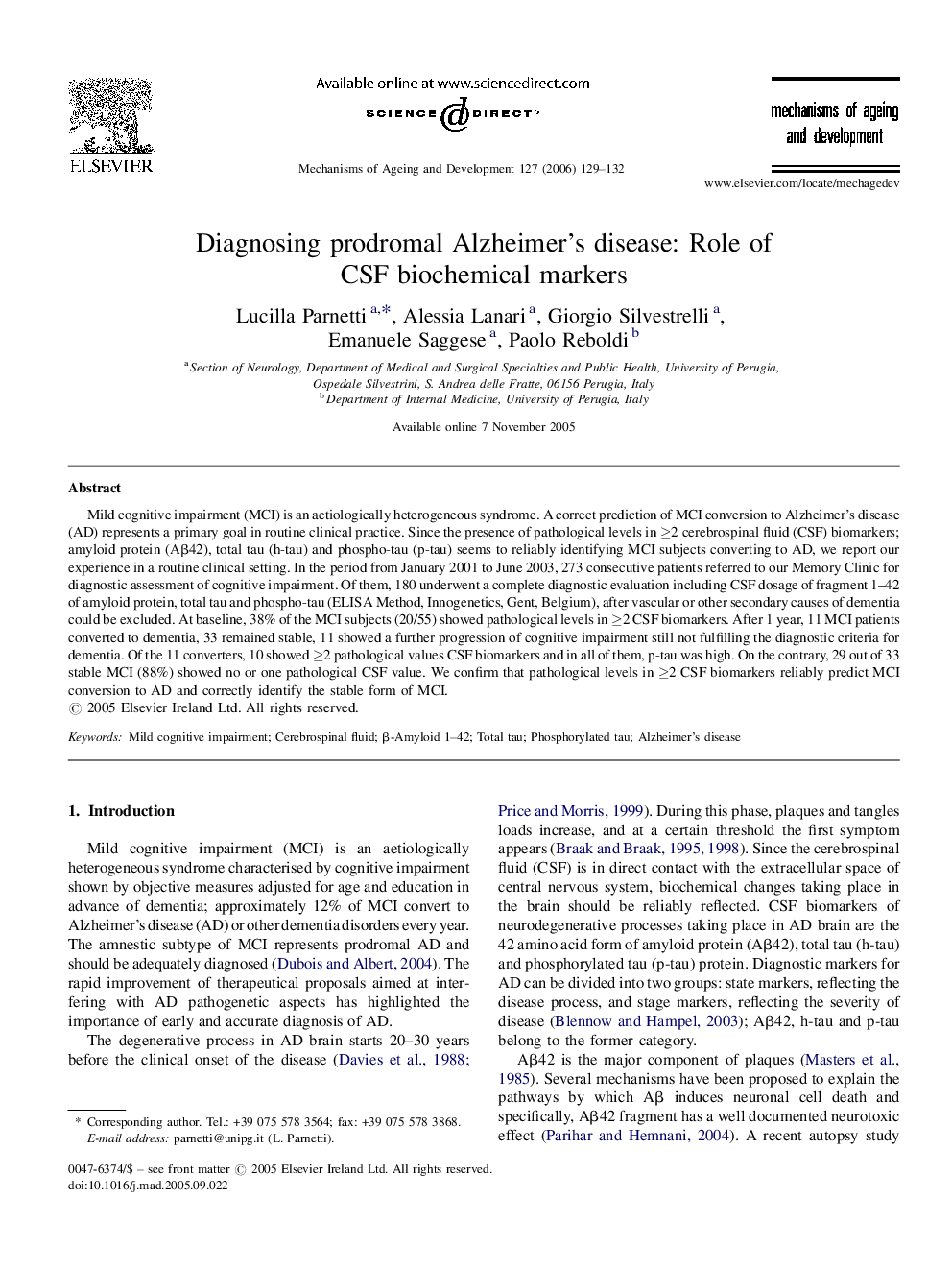| Article ID | Journal | Published Year | Pages | File Type |
|---|---|---|---|---|
| 1920004 | Mechanisms of Ageing and Development | 2006 | 4 Pages |
Mild cognitive impairment (MCI) is an aetiologically heterogeneous syndrome. A correct prediction of MCI conversion to Alzheimer's disease (AD) represents a primary goal in routine clinical practice. Since the presence of pathological levels in ≥2 cerebrospinal fluid (CSF) biomarkers; amyloid protein (Aβ42), total tau (h-tau) and phospho-tau (p-tau) seems to reliably identifying MCI subjects converting to AD, we report our experience in a routine clinical setting. In the period from January 2001 to June 2003, 273 consecutive patients referred to our Memory Clinic for diagnostic assessment of cognitive impairment. Of them, 180 underwent a complete diagnostic evaluation including CSF dosage of fragment 1–42 of amyloid protein, total tau and phospho-tau (ELISA Method, Innogenetics, Gent, Belgium), after vascular or other secondary causes of dementia could be excluded. At baseline, 38% of the MCI subjects (20/55) showed pathological levels in ≥2 CSF biomarkers. After 1 year, 11 MCI patients converted to dementia, 33 remained stable, 11 showed a further progression of cognitive impairment still not fulfilling the diagnostic criteria for dementia. Of the 11 converters, 10 showed ≥2 pathological values CSF biomarkers and in all of them, p-tau was high. On the contrary, 29 out of 33 stable MCI (88%) showed no or one pathological CSF value. We confirm that pathological levels in ≥2 CSF biomarkers reliably predict MCI conversion to AD and correctly identify the stable form of MCI.
